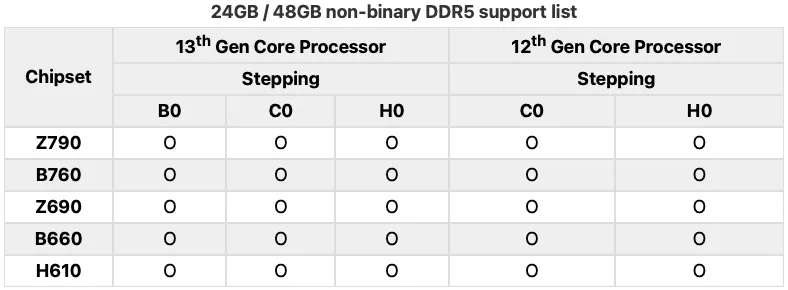MSI's Intel 600 and 700-series motherboards now support 24GB and 48GB memory modules.
Intel's Alder Lake, Raptor Lake CPUs Get Support for 192GB of DDR5 : Read more
Intel's Alder Lake, Raptor Lake CPUs Get Support for 192GB of DDR5 : Read more


